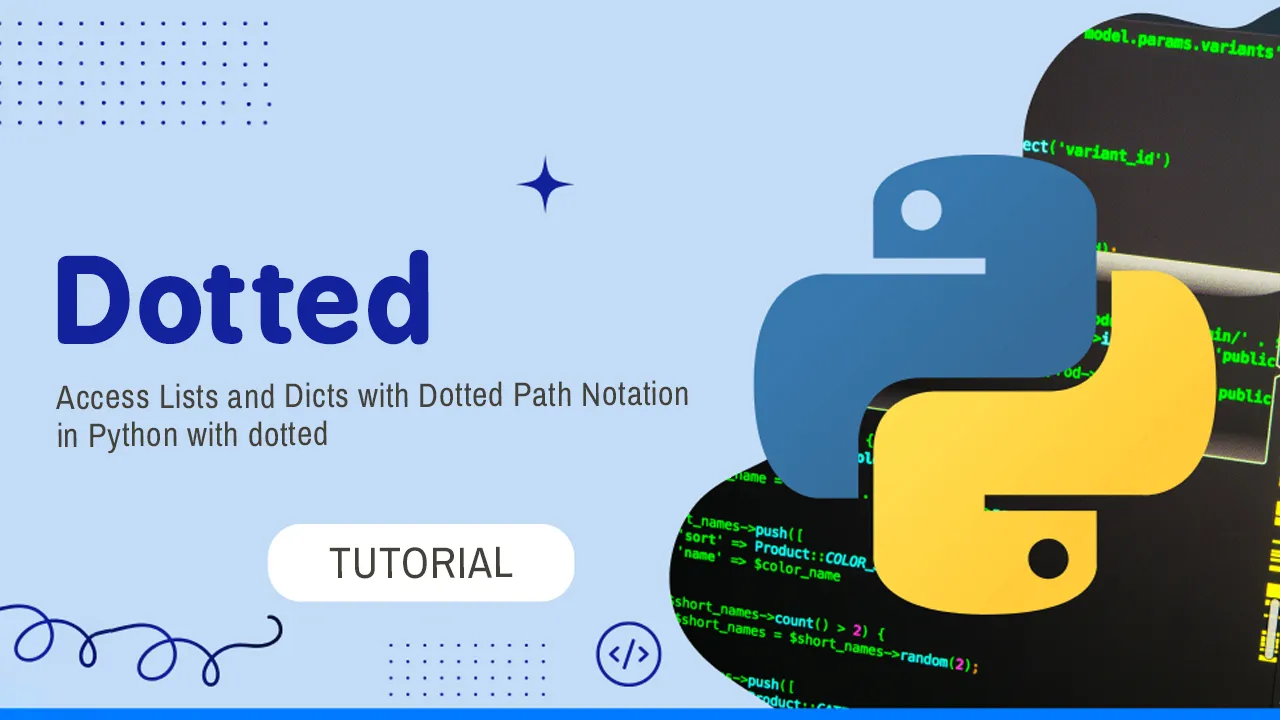Access Lists and Dicts with Dotted Path Notation in Python with dotted
dotted
obj = DottedDict({'hello': {'world': {'wide': 'web'}}})All of these are true:
obj['hello'] == {'world': {'wide': 'web'}}
obj['hello.world'] == {'wide': 'web'}
obj['hello.world.wide'] == 'web'
obj.hello == {'world': {'wide': 'web'}}
obj.hello.world == {'wide': 'web'}
obj.hello.world.wide == 'web'Example #3: Both working together
obj = DottedCollection.factory({
'hello': [{'world': {'wide': ['web', 'web', 'web']}}]
})You can access:
obj['hello'][0]['world']['wide'][0]
obj.hello[0].world.wide[0]
obj.hello[0].world['wide'][0]
obj.hello[0].world['wide.0']
obj.hello['0.world'].wide[0]
...
obj['hello.0.world.wide.0']
Example #4: When new values are dicts or lists
obj = DottedCollection.factory(some_obj)
obj['some.path'] = {'hello': 'world'} # will be converted to a DottedDict
obj['another.path'] = ['hello'] # will be converted to a DottedList
Example #5: Shortcuts
from dotted.utils import dot, dot_json
obj = dot({'hello': 'world'})
obj = dot_json('{"hello": "world"}')
Example #6: Keys with dots inside!
Well, you can actually use escaped keys, but it's better to avoid them:
from dotted.utils import dot, dot_json
obj = dot({"hello\.world": "Hello!"})
obj = dot_json('{"hello\\\\.world": "Hello!"}')
value = obj["hello\.world"] # Hello!
That's all!
Tests
Run in the terminal from the parent directory:
python -m dotted.test.test_collectionDownload details:
Author: carlosescri
Source: https://github.com/carlosescri/DottedDict
License: MIT license

1.05 GEEK